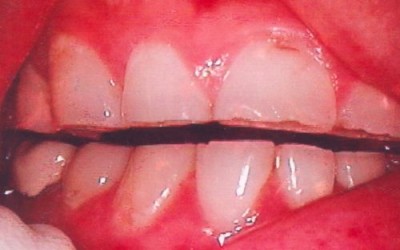Teeth Grinding (or Bruxism)
 Teeth grinding, or bruxism, is a common problem. Bruxism is a condition in which you grind or clench your teeth. If you have bruxism, you may unconsciously clench your teeth together during the day or grind your teeth at night.
Teeth grinding, or bruxism, is a common problem. Bruxism is a condition in which you grind or clench your teeth. If you have bruxism, you may unconsciously clench your teeth together during the day or grind your teeth at night.
Bruxism Symptoms
Symptoms of sleep bruxism tend to be worst upon waking and improve during the course of the day. Symptoms of awake bruxism may not be present upon waking, and then worsen over the course of the day. Mild bruxism may not require treatment. However, in some people, it can be frequent and severe enough to lead to jaw disorders, headaches, damaged teeth or disturbed sleep.
Signs and symptoms of bruxism may include:
- teeth grinding or clenching;
- flattened, fractured or chipped teeth;
- worn tooth enamel;
- jaw or face pain;
- tired or tight jaw muscles;
- dull headache originating at temples; and/or
- increased tooth sensitivity.
Causes of Bruxism
Possible causes of bruxism may include:
- Emotions, such as anxiety, stress, anger, frustration or tension;
- Abnormal alignment of upper and lower teeth;
- A coping strategy or focusing habit;
- Response to pain from an earache or teething in children; or
- Other sleep problems, such as sleep apnea
Bruxism or teeth grinding doesn’t cause serious complications, but severe bruxism may lead to:
- damage to teeth, restorations, crowns, or jaw;
- tension-type headaches;
- facial pain; or
- disorders that occur in the temporomandibular joints (TMJ), which may cause popping or clicking when you open and close your mouth.
When to See Your Dentist About Bruxism
See your dentist if:
- your teeth are worn, damaged or sensitive;
- you have pain in your jaw, face or ear;
- others complain that you make a grinding noise during sleep; and/or
- you have a locked jaw that won’t open or close completely.
The appropriate treatment will depend on what is causing the problem. Dr. Taylor can help you determine the potential source of the bruxism by asking careful questions and doing a thorough exam. She can then determine how best to treat it. The usual method is to wear a night guard (a dental appliance worn to stop teeth grinding).

